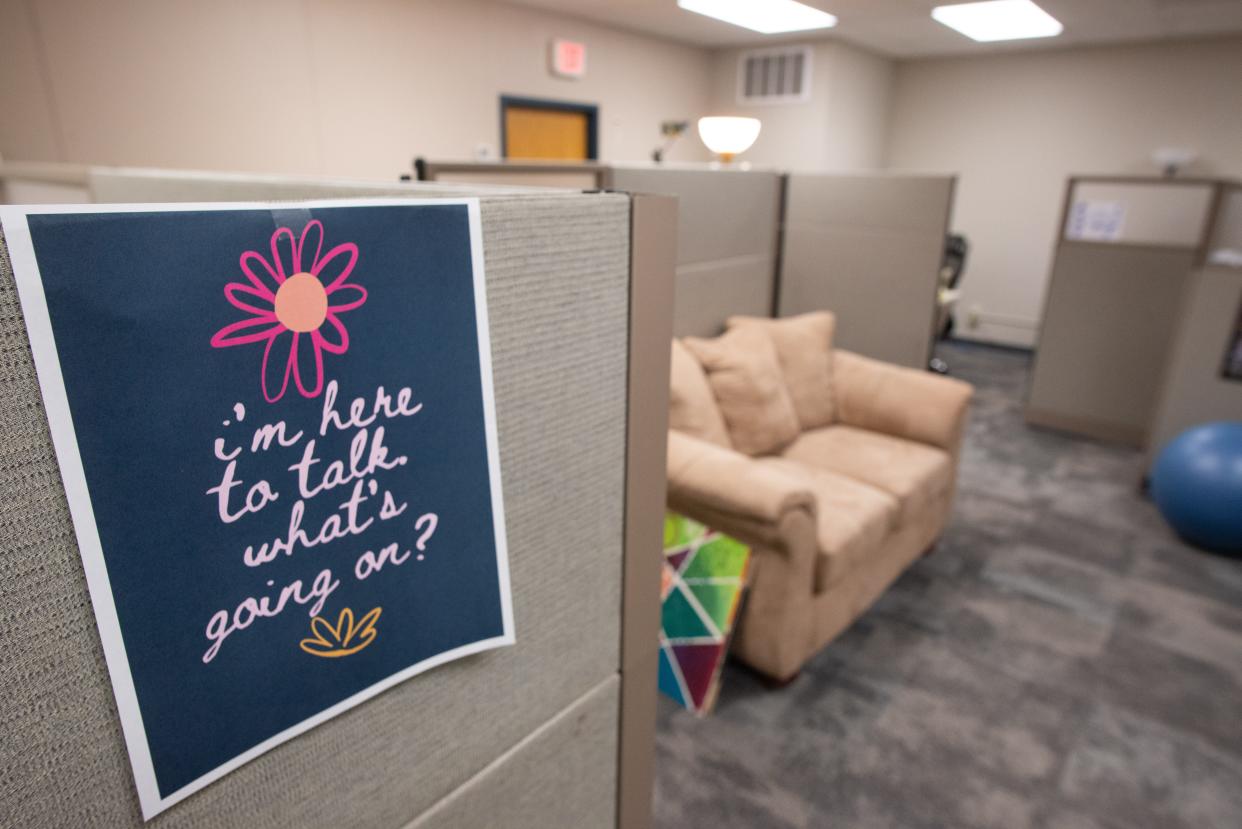The 988 hotline is going live in Kansas. Here is what to know about the suicide prevention tool.

- Oops!Something went wrong.Please try again later.
Starting Saturday, Kansans will have a much simpler way of getting help for themselves or someone in mental health crisis: dial 988.
The 988 suicide prevention hotline has been in the works nationally since Congress laid the groundwork in 2020, though it is up to states to fund and support the work. It will be available 24 hours a day, seven days a week.
The idea is to help residents more easily remember how to access mental health support.
"With 9-8-8, we are on the path to reversing our country’s mental health crisis and getting Kansans the help they need,” Gov. Laura Kelly said in a statement announcing the hotline going live. “Just as every American knows to call 9-1-1 in times of emergency, every American — and every Kansan — will soon know to call 9-8-8 when they or a loved one is facing a mental health or substance abuse crisis.”
Also: Panasonic factory coming to Kansas in state's largest ever economic development project
What happens when I call 988 in Kansas?
When someone dials 988, they are transferred to the crisis hotline that is closest to them geographically. In most counties, that is the Kansas Suicide Prevention Headquarters, based in Lawrence, though Wichita residents will be transferred to a line run by the local mental health provider, COMCARE.
If all operators are tied up, the call would then roll over to an out-of-state hotline, though Monica Kurtz, executive director of the Kansas Suicide Prevention Headquarters, said this is prevented at all costs.
"We do pretty strongly believe that Kansans are best served by Kansans," Kurtz said in an interview earlier this year. "That we have a better idea of what goes on in our state and what resources are available for folks than someone who isn't here."
Providers are expecting a significant rise in calls because of the new number.
In other news: Kansas has less public land than other states, but parks see record visitation
What resources are available by calling 988?
Operators can connect callers with local resources, such as therapy, a nearby community mental health center or even emergency services, depending on how severe the situation is.
It also can include the deployment of mobile crisis units to help individuals in distress.
Those units can include law enforcement, social workers or EMTs, as needed, with an eye towards better ensuring individuals in crisis get the exact help they need.
More: A new suicide prevention hotline is coming — what if the Kansas Legislature doesn't fund it?
How is the state supporting 988?
Kansas legislators approved $10 million in funding in the state budget to get the hotline up and running and fund some of the services, such as the mobile crisis units.
Lawmakers also passed a separate bill, later signed by Kelly, allowing the Kansas Department of Aging and Disabilities Services to begin certain mental health services, create an advisory council and hire staff to support the hotline.
If you or someone you know may be struggling with suicidal thoughts, you can call the U.S. National Suicide Prevention Lifeline at 800-273-TALK (8255) any time day or night, or chat online. The Kansas Suicide Prevention Line can be reached at 785-841-2345.
Andrew Bahl is a senior statehouse reporter for the Topeka Capital-Journal. He can be reached at abahl@gannett.com or by phone at 443-979-6100.
This article originally appeared on Topeka Capital-Journal: 988 suicide prevention hotline goes live in Kansas
